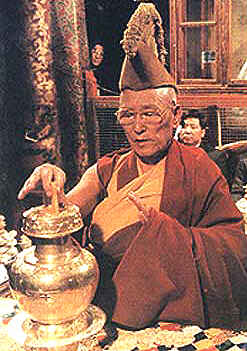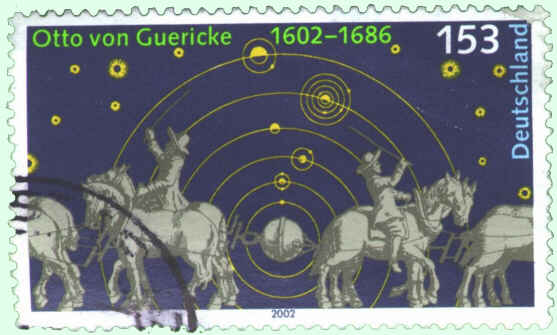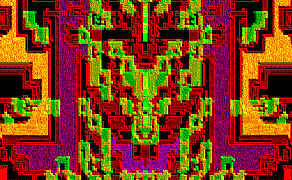| < 19 Nov | 21 Nov > |
2006 Christine Collier, 16; Nicole Ford, 19; and Tanesha Hill, 17; students of Lee High School in Huntsville, Alabama, after, at 10:10 (15:10 UT) the school bus taking some 40 of the students to classes at the Center for Technology on Drake Avenue swerves to avert and then is sideswiped by a passing car driven by a Lee High School student, crashes through the guard rail, .and plunges nose first off the Interstate 565 access ramp at US highmay 231 some 10 meters onto Church Street. Injuries are suffered by the driver, 17, and more than 30 students, including Crystal Renee McCrary, 17, who dies the next day. Nicole Ford was the single mother of Demarcus Ford, 4; she had returned to school after his birth and after the boy's father, her former mate Darius M. Bedford, had shot her the face in December 2002, leaving her with impaired vision in one eye and partially paralyzed. Large buses in Alabama and school buses throughout the US are not required to have seat belts. —(061121)
2004 Arash Ghorbani-Zarin, 19, stabbed 46 times by Mamnoor Rahman, 15, assisted by his brother Mohammed Mujibar “Muji” Rahman, 18, in Oxford, England. His sister, Manna Begum, 19, was pregnant having openly become the mate of Ghorbani-Zarin, an Iranian who, intending to marry her, gave up his studies of electronic engineering at Oxford Brookes University and took a job. Her father, Chomir Ali, 43, a Bangladeshi, was trying to force her into a marriage with another man. She even attempted suicide (the unborn child would be murdered by abortion). He ordered his two sons to kill Ghorbani-Zarin to vindicate “the family honor”. The father and the two sons would be convicted on 04 November 2005, and later sentenced to life in prison. — (051105)
2003 David Dacko, 73, who succeeded Central African Republic's independence leader Barthélemy Boganda killed in a plane crash in 1959. Dacko became president at the nation's declaration of independence but on 01 January 1966, he was overthrown by the dictator and future self-proclaimed Emperor Jean-Bedel Bokassa. Bokassa was overthrown in 1979 with the help of French paratroopers. Dacko was reinstated as leader, and won elections in 1981 but was pushed aside soon afterward by the military ruler André Kolingba.
2003 Five bystanders and the driver of a suicide truck bomb at the office of the PUK in Kirkuk, Iraq, at 10:30. The dead include a boy, 7, who died of his injuries in the evening.
 2003
British Consul-General Roger Short, British consulate employee Lisa Hallworth,
two other Brits, and at least 25 other persons including two suicide truck
bombers in Istanbul, Turkey, one the at the Turkish headquarters
of the London-headquartered HSBC bank at 11:10 (09:10 UT), the other at
the British consulate 8 km away, at 11:12. Some 450 persons are wounded.
HSBC bank is the world's second biggest bank by stock market value; it is
present in 79 countries. It opened on 03 March 1865, founded by Thomas
Sutherland [1834-1922], Francis Chomley, and 12 other UK nationals in
Hong Kong, as the Hong Kong & Shanghai Banking Corporation. After acquiring
other banks it is now the HSBC
Group.
2003
British Consul-General Roger Short, British consulate employee Lisa Hallworth,
two other Brits, and at least 25 other persons including two suicide truck
bombers in Istanbul, Turkey, one the at the Turkish headquarters
of the London-headquartered HSBC bank at 11:10 (09:10 UT), the other at
the British consulate 8 km away, at 11:12. Some 450 persons are wounded.
HSBC bank is the world's second biggest bank by stock market value; it is
present in 79 countries. It opened on 03 March 1865, founded by Thomas
Sutherland [1834-1922], Francis Chomley, and 12 other UK nationals in
Hong Kong, as the Hong Kong & Shanghai Banking Corporation. After acquiring
other banks it is now the HSBC
Group.2002 Puan Sri Azizah Abdul Aziz, 57, her son-in-law Shamsul Azhar Shafie, 35, her son Ahmad Ijaz, 37, Ahmad's wife Zaradina Zaini, 29, and their children Johan, 1, and Zurian Aishah, 5; and the two Indonesian maids Su and Tini, as a landslide destroys the Kuala Lumpur home where they were about to have their sahur (pre-dawn Ramadan meal) with Puan's husband, former Armed Forces commanding general Tan Sri Ismail Omar, 62, now chairman of Affin Bank Bhd, and four other survivors, Intan Jasmin (Shamsul's wife) and her children, Ilya Syamira, Shamir Izat, and Shazwan. Ismail's house, at the end of Jalan Tiga in the Taman Hillview neighborhood, was less than 300 meters from the scene of the 1993 collapse of one of three blocks of the Highland Tower apartments which killed 48.
2002 Bomi Jampa Lodroe, born in 1918, senior Tibetan lama (“Rimpoche”) who did the Chinese Communist authorities' bidding in conducting a 29 November 1995 recognition ceremony of their phony puppet 11th Panchen Lama, is opposition to the authentic one recognized by the Dalai Lama.
[photo: Bomi Jampa Lodroe at the ceremony for the selection of the phony Panchen Lama. Sitting behind is puppet master Luo Gan, then Secretary General of the State Council, later Secretary of the Communist Party's Political and Legal Affairs Commission >]

1999 Amintore Fanfani, político italiano, senador vitalicio, dirigente de la Democracia Cristiana italiana y seis veces presidente del Gobierno, fallece en Roma a los 91 años de edad.
1996 Thirty-nine persons, in a fire in a building in Hong Kong.
| ^
1990 Layne Hall, US's oldest driver,
105 (or 109?) Layne Hall of Silver Creek, New York, died at the age of 105, according to his death certificate. However, according to Hall's active driver's license, issued in 1988, he would have been one month shy of 110 years old. Whether he was actually 110 years old, or only 105, Halls had the distinction of being the oldest licensed driver in the United States at the time. If he was 110, he likely beat the previous record holder, Mrs. Maude Tull of Inglewood, California, who was issued a license renewal in 1976 at the age of 104. Tull first took up driving at the age of ninety-one after her husband died. |
1989 Leonardo Sciascia, escritor italiano.
1986 Beurling, mathematician.
1986 Alexander Ostrowski, mathematician.
1984 Santiago “Santi” Brouard Pérez, nacido en 1919, pediatra, dirigente de Herri Batasuna (HB), asesinado, se lo atribuyen los Grupos Antiterroristas de Liberación (GAL).
| ^
1975 Francisco Paulino Hermenegildo Teodulo Franco Bahamonde,
82 ( two weeks before his 83rd birthday), in Madrid, general and leader
of the Nationalist forces that overthrew the Spanish democratic republic
in the Spanish Civil War (1936-39); thereafter until his death he
was Spain's dictator A 82 ans, Francisco Franco y Bahamonde meurt apres un mois d'une interminable agonie. La disparition du caudillo (le chef en espagnol), apres quarante ans de pouvoir sans partage, genere en Espagne et dans le monde occidental des sentiments meles d'espoir et de crainte. Beaucoup de gens apprehendent le retour des fantomes de la guerre civile. Peu osent parier sur le succès de Juan Carlos de Bourbon, designe par l'ancien dictateur pour lui succeder avec le titre de roi. On ne se gêne pas dans le pays pour le traiter publiquement de "tonto" (idiot). Juan Carlos 1er saura en definitive conduire le pays vers la democratie. |
1959 Alfonso López Pumarejo, político liberal y ensayista colombiano.
1955 Benedetto Croce, filósofo italiano.
1921 Reijiro Wakatsuki, 25th and 28th Prime Minister of Japan (30Jan1926-20Apr1927, 14Apr1931-13Dec1931), born on 05 February 1866 in Shimane Prefecture.
| ^
1943 Hundreds of US Marines landing on Tarawa One of the bloodiest battles in the history of the US Marine Corps begins. The 2nd Division landed on Tarawa, an atoll (a ring-shaped coral reef enclosing a lagoon) in the Gilbert Islands, on amphibious tractors with little armor. Their 3.5-mile surge up the beachfront was met with heavy fire from Japanese shore guns. So much smoke and coral dust was raised by this preinvasion bombardment that fire was halted for half an hour to allow the smoke to clear. When the smoke did finally clear, it unveiled hundreds of US Marines struggling to wade ashore through blood-stained turf. The landing craft had come in at extremely low tide, forcing soldiers to clamor a full half-mile to shore. Some of them got caught in barbed wire strung through the shallow water and were gunned down. The leader of the Second Division, Colonel David Shoup, stood in waist-deep water, his leg badly wounded, directing the assault. Shoup was one of four Marines to receive a Medal of Honor for his bravery at Tarawa. Sadly, the other three Marines received their medals posthumously. At 6:15 the next morning, Major General Julian C. Smith sent in the rest of the Marine division, which faced the same merciless fire as the day before. But slowly, with the help of tanks, howitzers, flame throwers, TNT charges, and grenades, they fought their way inland. By the end of the second day, Shoup radioed to headquarters: "We are winning.” The American press covered "Bloody Tarawa" more thoroughly than any previous campaign. The 1000 American soldiers killed in just seventy hours, as well as the pictures of bodies floating in red surf, shocked the nation. Still, despite heated debate about the execution of Tarawa, it was an undisputed victory. Almost the entire Japanese garrison, a total of 4690 men, had been killed. |
1934 Sitter, mathematician
| ^
1910 (7 November Julian) Lev Nikolayevich graf Tolstoy,
82, great Russian writer born on 28 August 1828.. — MORE. Lev Nikolaevich Tolstoy (po-russki): Anna Karenina. — Voyna i Mir — Nabeg. Rasskaz volontera — Rubka lesa. Rasskaz yunkera — Kreytserova Sonata — Iz kavkazskix vospominaniy. Razzhalovanyi — Zapiski markera — Metel' — Dva gusara — Filosoficheskie zamechaniya na rechi J. J. Rousseau — O tseli filosofii Ne ubiy nikogo TOLSTOY ONLINE (in English translations): |
||
| |
|
|
1908 Voronoy, mathematician.
1901 (or 13 Nov) Egisto Sarri, Italian artist born in 1837.
| ^
1894 Anton Grigoryevich Rubinstein,
born on 28 November 1829, Russian composer and one of the greatest
pianists of the 19th century. In 1835 Rubinstein's father opened a small factory in Moscow, and there in the same year his brother Nikolay was born. Both boys were taught piano, first by their mother and then by Aleksandr Villoing. Anton gave his first public recital in Moscow in 1839, and the following year Villoing took him abroad for a three-year concert tour. He appeared in Paris, London, The Netherlands, Germany, and Sweden, attracting the attention of Chopin and Liszt. From 1844 to 1846 he and his brother studied music theory in Berlin. Anton spent two more years abroad alone, mainly in Vienna, studying the piano and composition. On his return to Russia in 1848 he settled in St. Petersburg, where in 1852 his first opera, Dmitry Donskoy, was produced; Fomka durachok and Sibirskiye okhotniki were introduced in St. Petersburg in 1853. The years 1854 to 1958 he spent abroad. Under the patronage of the Grand Duchess Elena Pavlovna, Rubinstein in 1859 founded the Russian Music Society and later became conductor of its orchestral concerts. In 1862 he founded and became the director of the Imperial (or St. Petersburg) Conservatory, and in 1866 his brother founded the Moscow Conservatory, where Nikolay remained as director until his death in 1881. Anton Rubinstein resigned his directorship of the Imperial Conservatory in 1867 but resumed it in 1887 and continued to hold the post until 1891. From 1871 to 1872 he directed the Vienna Philharmonic concerts, and in 1872 he toured the United States. Rubenstein's operas include Demon (1875), Der Makkabäer (1875), and Kupets Kalashnikov (1880). He wrote six symphonies, the biblical opera Der Turm zu Babel (1870), five piano concerti, songs, piano pieces, and numerous chamber works. In 1889 Rubinstein published an autobiography. |
1856 Farkas Bolyai, mathematician.
| ^
1806 Isaac Backus, New England preacher
who advocated religious liberty, in Norwich, Connecticut. His Puritan mother had great influence in shaping his religious ideas. In the summer of 1741, Isaac was deeply moved by the preachers of the Great Awakening. He later described how all of his past life flashed before him, how he saw his own sinfulness, and how God's light enabled him to trust Christ's righteousness for salvation. When English evangelist George Whitefield came to New England Isaac was so eager to hear his preaching that he followed him to five different towns. About this time, Isaac's mother and brother helped form a church which required that members must accept Christ as Saviour. Since the official Massachusetts state Church had no such membership requirement, and it was against the law for any church to have different rules, Backus' mother and brother were jailed for a time. After that incident, the importance of religious liberty was indelibly imprinted in Backus' mind. Isaac was ordained as an independent preacher in 1748, and in l75l organized a Baptist church. For the next sixty years, he travelled more than 70,000 miles in America preaching the Gospel. In 1774, at the First Continental Congress in Philadelphia, Isaac Backus was there representing the Baptists and urging religious liberty for Massachusetts. Later, as Massachusetts' delegate he voted for the US Constitution's protection of free worship. |
1678 Karel Dujardin, Dutch Romanist painter and etcher born in 1622. — MORE ON DUJARDIN AT ART “4” NOVEMBER with links to images.
0869 Saint Edmund is martyred by the Danes when he refuses to submit because it is not right for a Christian king to submit to a pagan. They tie him to a tree and shoot his extremities full of arrows.


